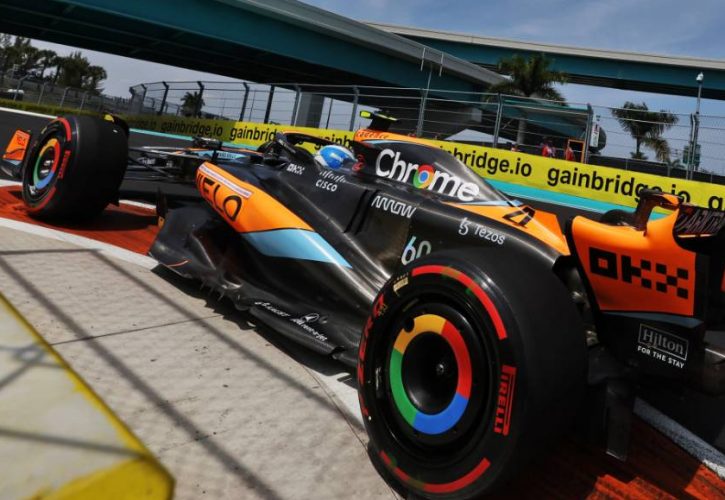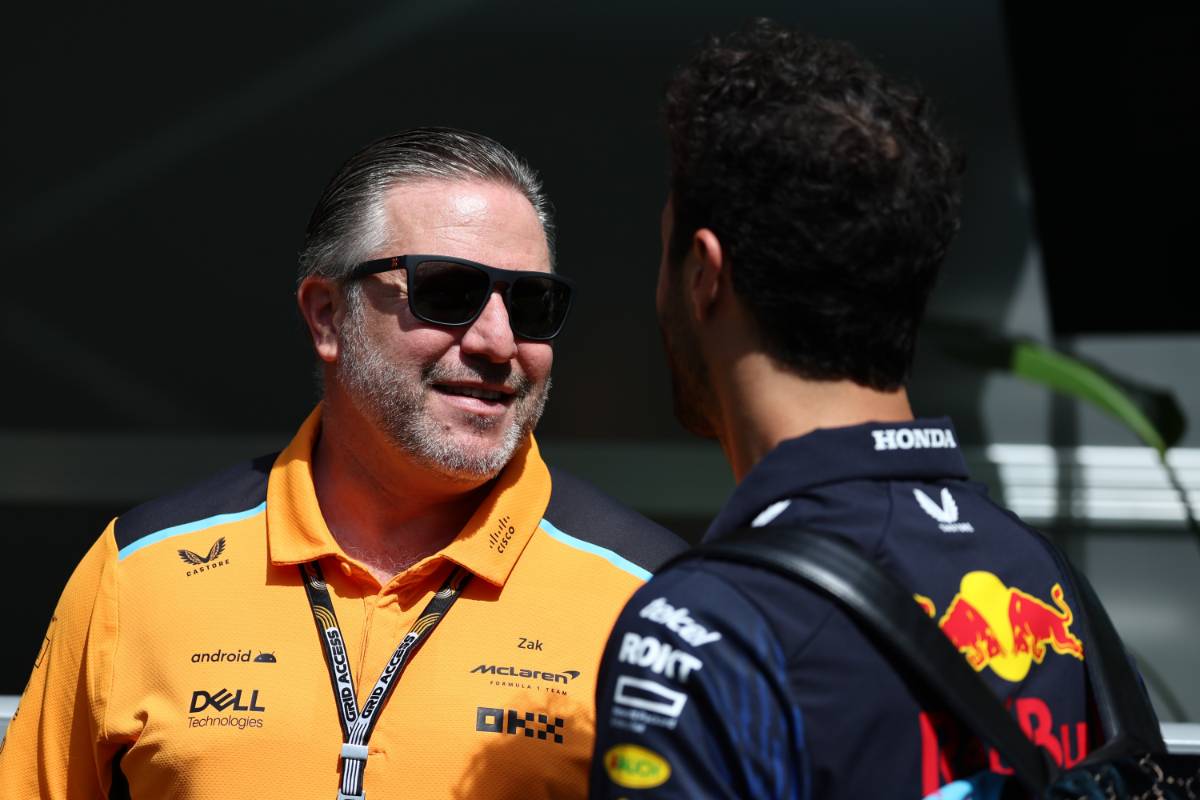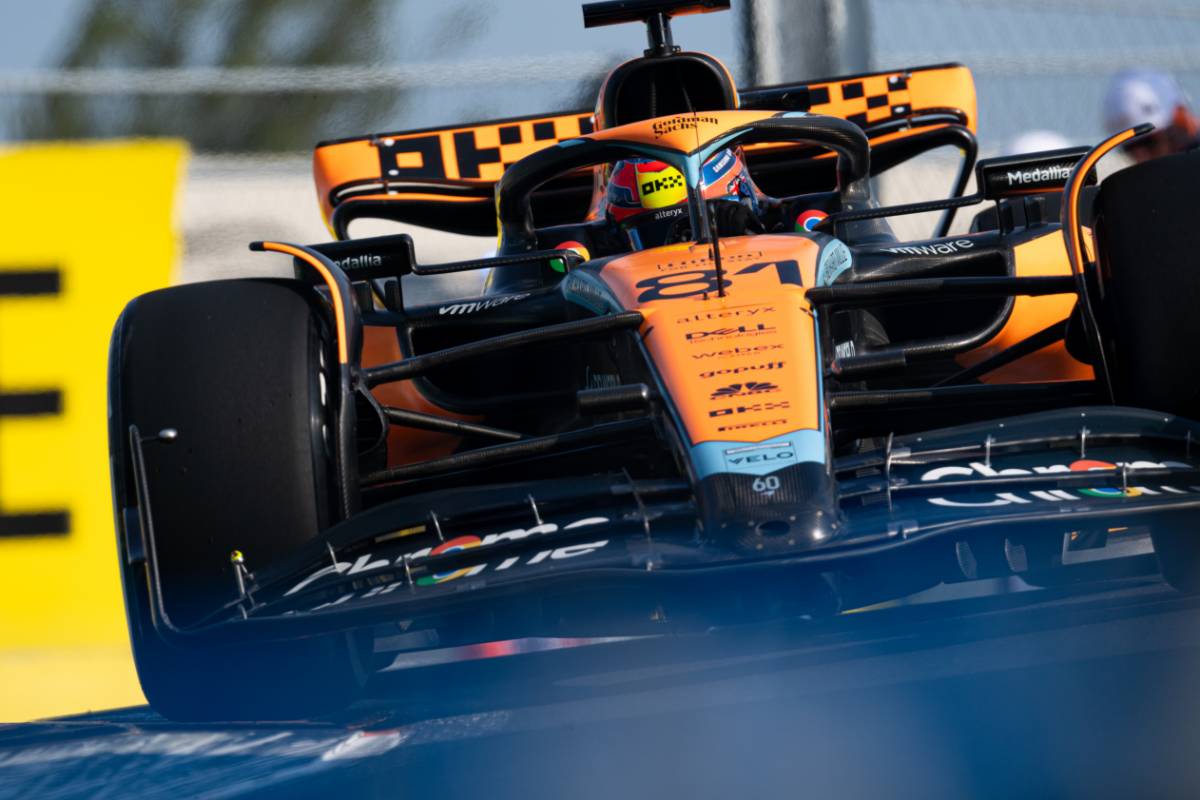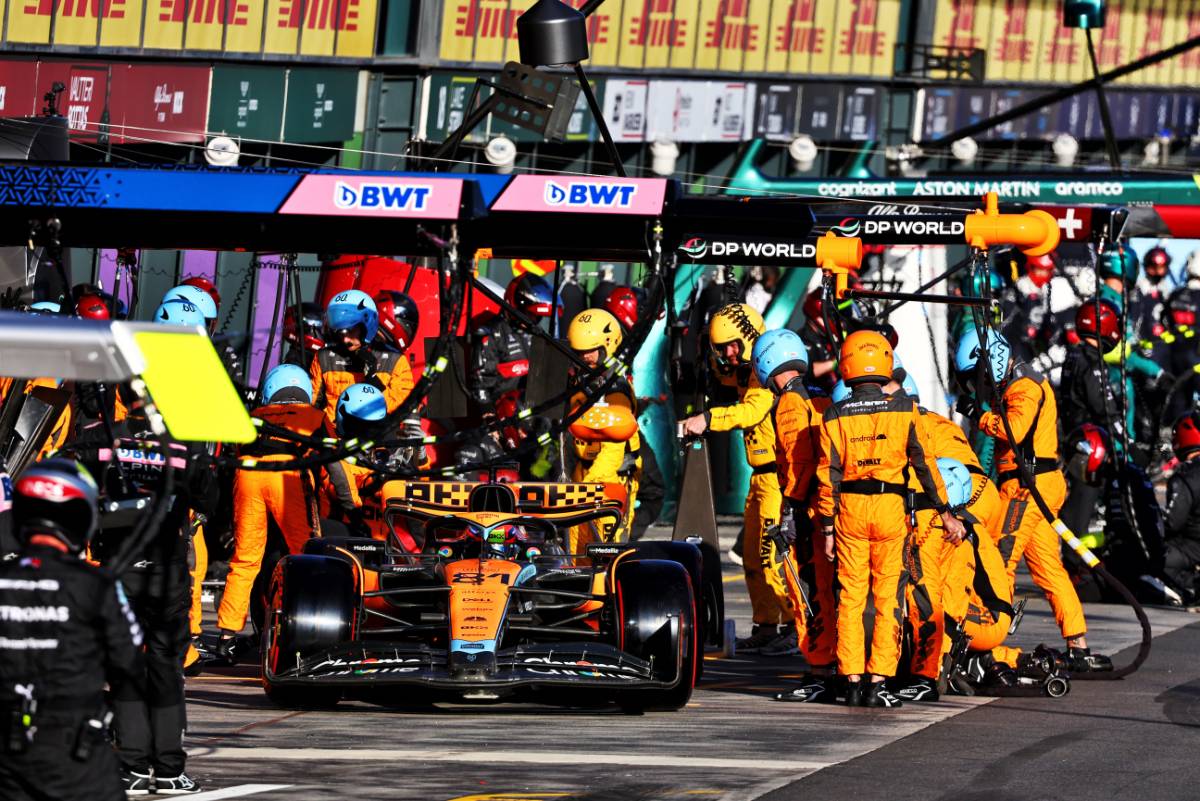
The McLaren team has called for changes to Formula 1's financial rules in order to encourage initiatives to improve the sport's sustainability in the future.
McLaren published its annual sustainability report on Thursday and pointed out that most current initiatives to improve sustainability have to be included within the strict budget cap introduced in 2021.
McLaren pointed out that this meant that teams "frequently need to balance investing in performance versus investing in sustainability within the confines of the cost cap."
“We strongly believe in the cost cap and wouldn’t want to see anything that undermines its integrity," commented McLaren CEO Zak Brown.
"But current regulations have created some unintended barriers when it comes to investing in sustainability.
"To unlock our sport’s potential to drive the development of more sustainable technologies that can spark positive changes on a global scale, we need a genuine step change.

"There needs to be a way to define areas you can spend outside the cap so we can work towards making F1 more sustainable," Brown said.
“That requires a level playing field so teams can work towards achieving the same targets and no longer need to choose between investing in car performance and investing in sustainability.
“Our sport needs a clear regulatory framework with financial, technical and sporting regulations that better enable us all to innovate and invest in sustainability," he added.
"We need to find better ways to share expertise and insights across our industry. Only true collaboration will help us drive meaningful change.
"If we want to achieve a step change with the new set of 2026 regulations, then those decisions need to be made now.”

F1's budget cap is currently set at $135m in an attempt to close up the field and make the racing more competitive by stopping the best-funded teams like Ferrari and Mercedes from 'spending their way out of trouble'.
Some sustainability initiatives can already be omitted from the budget cap but only where they are directly attributable to an existing exclusion.
McLaren welcomed recent sustainability measures included in the updated financial regulations such as the introduction of ‘clear sustainability criteria’ into the Concorde Agreement.
It also places clear requirements on promoters and organisers over sustainability initiatives, and puts in place exclusions relating to the adoption of more sustainable materials in the technical regulations.
McLaren's own report highlights how the squad has achieved a nine per cent reduction in air freight emissions over two years, converted lighting at McLaren technology Centre to LEDs, and eliminated single-use plastics.
Brown said that one of McLaren's "moonshot" ambitions was to develop "a full circular race car" in which a team would focus on minimising resources consumed through the entire life cycle of a car's development and operation.

That would include using recycled materials, finding ways to expand their usage lifespan, and disposing of them correctly at end of life.
"A lot of work would need to go into understanding: 'Is that achievable?'" Brown explained. "At the same time, you could make similar types of investments without having sustainability in mind to further develop your race car."
F1 is already planning to use carbon-neutral, fully sustainable synthetic fuel in new engines that will be mandated for 2026 and has pledged to be net-zero carbon by 2030.
But McLaren's director of sustainability Kim Wilson is hopeful that McLaren's initiatives can help shape the formulation of the 2026 technical regulations currently under discussion.
"The technical regulations are an opportunity to create a level playing field for teams so that the regulations are driving us all to the same outcomes," she said.
Keep up to date with all the F1 news via Facebook and Twitter







